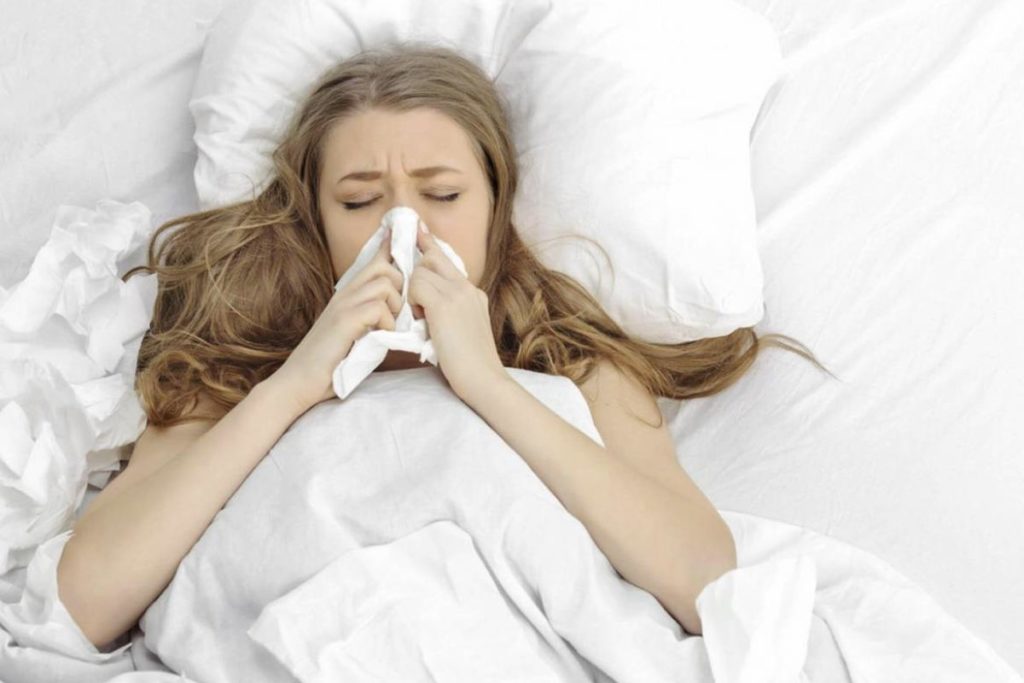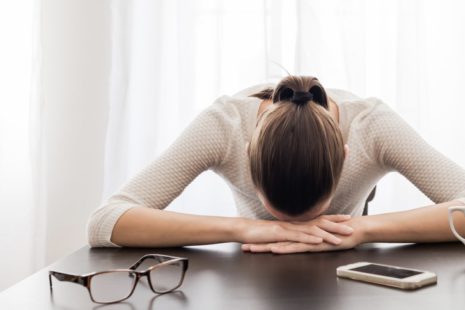You’re feeling under the weather and don’t want to let your gym routine slip, however, there are times when it’s best to swap the Stairmaster for the sofa and the bench for your bed. We seek advice from Dr Frankie Jackson-Spence…
How does exercise affect the immune system?
Regular exercise, in general, is good for your health but exercise is better for prevention rather than cure. Studies have shown that regular exercise boosts the immune system compared to people who live a more sedentary lifestyle, so the chance of catching a common cold is reduced. One study showed a better immune response to the flu jab with exercise. Just remember, an illness is a stress on your body, and exercising through it is putting unnecessary stress on your body during this time and taking energy away from your immune system fighting it.
Can you workout if you have a common cold?
There’s no one-size-fits-all answer to this question! Everyone’s illness will be slightly different and only you know how you feel. If you have mild symptoms such as a sore throat and the sniffles, you might feel well enough to workout. Studies have shown no benefit or harm from exercising with a bit of nasal congestion, so if you genuinely feel up to it then go for it. Perhaps opting for something of a lower intensity would be more suitable such as yoga, cycling, some lighter weights rather than high intensity cardiovascular exercises which might make your sore throat worse and leave your lungs burning.

When are you too ill to workout?
In general, if your symptoms are systemic such as fever, shakes, joint pain or feeling dizzy then the gym should be a no-go until you start to feel better. When we’re ill, our appetite is often reduced and we don’t eat or drink enough. Working out when you’re not adequately fuelled could cause you to feel faint or dizzy, cause dehydration or even put you at risk of fainting.
If you have a cold that spreads into your lower respiratory tract and you experience symptoms such a productive cough, shortness of breath or fever, it’s advisable to rest and recover. Exercising during this time could make you feel worse and actually result in a longer duration of illness. Plus your gym peers are not going to welcome you when you’re coughing and spluttering on the gym equipment!
If you’ve been suffering from diarrhea and vomiting, you should avoid going to the gym or to work as it’s easy to spread, plus you’re at increased risk of becoming dehydrated. On top of that, you should not return to the gym for 48 hours after symptoms have resolved as you can still pass it on to your fellow gym-goers, even if you feel fine.
When can you return to training after illness?
When you stop coughing up phlegm, the fever subsides and you feel like you have a bit more energy, you might be okay to start working out again. I’d advise reducing the intensity of your workout to ease yourself back in. Perhaps if you’d planned to do sprints, opt for a brisk walk or gentle jog instead. It can take a few days to recover from even a simple cold.
You could use this opportunity to focus on the things in your training that you often neglect such as working on mobility or stretching. Gentle movement won’t feel too taxing on your body or energy resources and could even boost your performance when you finally get back to your normal routine.
To summarise
Overall, sometimes getting ill is your body’s way of telling you that you’re run down and you need to take it easy. We are all busy trying to fit in exercise alongside a busy work schedule, social life and eating well.
I think it’s important that you remember consistency is key. If you’re exercising regularly then you’ll still reap the benefits from your training. A couple of weeks off during the year whether that’s for holiday or because you’re unwell isn’t going to drastically affect your progress. What you’re doing the other 50 weeks of the year has a bigger impact.
Get your weekly DOSE fix here: SIGN UP FOR OUR NEWSLETTER
















